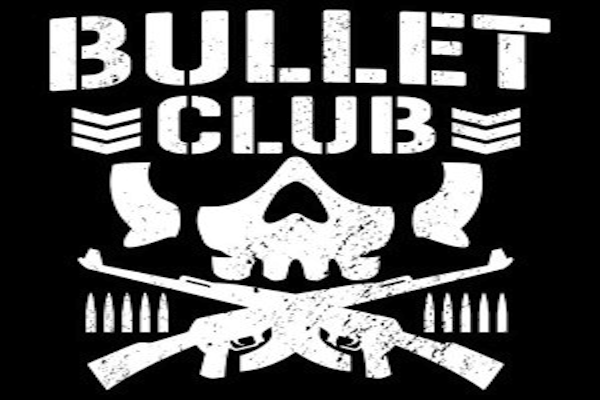
SPOTLIGHTED PODCAST ALERT (YOUR ARTICLE BEGINS A FEW INCHES DOWN)...
“Outlaw” is defined as a lawless person or habitual criminal, especially one who is a fugitive from the law; a person, group, or thing excluded from the benefits and protection from the law; a person under sentence of outlawry; a person who refuses to be governed by the established rules or practices of any group; a rebel or nonconformist.
Outlaw and professional wrestling have been synonymous since wrestling was born in the smelly haystacks of carnivals over a hundred years ago. Whacky carnies, untrustworthy athletes, and conniving promoters created a business that not only favored, but inherently encouraged the behavior of an outlaw. Thus, the pro wrestling business became the outlaw’s business and resided inside smoke-filled halls and dimly lit rooms on the sleazy outskirts of the entertainment world.
In the business of pro wrestling that worked. It grew to astronomical heights and was responsible for generating an exorbitant amount of money throughout the years. The stars leading that growth and the biggest stars in the history of the business became as popular as they did because they each embodied and exemplified the old outlaw nature that the business was rooted in.
Stars such as Ric Flair, Dusty Rhodes, Stan Hansen, Bruiser Brody, The Undertaker, “Stone Cold” Steve Austin, The Rock, C.M. Punk, and countless others connected with their audience and drew enormous amounts of money because like the wrestling business, they lived and acted outside the bounds of the norm.
Wrestling fans and people in general are attracted to that whether they want to admit it or not. It’s why so many people love Breaking Bad or The Sopranos. Right or wrong, people live vicariously through outlaws. Stone Cold beat up his boss, Ric Flair slept with copious amounts of women, and CM Punk took down his corporation from the outside. Who hasn’t imagined those kinds of things for themselves?
Today, WWE’s openly corporate model can’t nurture the tendencies of an outlaw and it doesn’t want to have to. The corporate world suffocates outlaws. Because of that simple fact, the wrestling outlaw was on the verge of extinction. The Bullet Club resurrected it from the dead.
The Bullet Club are the lone outlaws in today’s global pro wrestling world and are happy to tell us so via a 140-character tweet or a two-minute social media video. Bruiser Brody would be taking bumps over and over in his grave if he heard that sentence, or worse, saw the video. Why? Because they “do” pro wrestling differently than anyone else. That’s their gimmick and it scares people.
It scares people because the gimmick can mean and be anything. The heel and babyface dynamic? Who needs it? The Young Bucks are booked as bad guys, sell merchandise like good guys, do dastardly heelish deeds in the ring, execute exhilarating high-flying moves to get big pops, superkick children, and then post heartfelt Twitter messages that thank their wives and fans for the wonderful year they’ve had.
The balls on those guys, am I right? That isn’t bipolar, its genius.
Nick Jackson, Matt Jackson, Kenny Omega, Cody, Marty Scurll, and the rest of the gang are outlaws to even the most vicious wrestling outlaws in history. To history, these young punks are killing the business when in reality they are in the midst of opening a treasure trove of revenue streams that will make wrestler’s eyes bulge bigger than a pirate stumbling onto the docks of Tortuga.
Just five years ago, the WWE was the only place on the planet to truly earn a comfortable living in the wrestling business. The Bucks, Omega, Cody, and Scurll would have never received a chance to shine within that WWE machine. We’ve heard it all before. They’re too small, not built enough, and just didn’t look the part of a WWE Superstar.
So, they went to different pastures that they then turned green. On their own, they went to Japan and around the world to hone their gimmick and execute their vision for what wrestling could and should be. From those trials and tribulations of the worlds traveled, catchphrases were born, t-shirts were created, social media video programs were produced, and The Bullet Club suddenly was popular.
Their DIY attitude and execution worked and was infectious among fans. Who hasn’t imagined this kind of story for themselves at some point? Sound familiar? The Young Bucks, Kenny Omega, Cody, and Scurll were more popular than they ever would have been under the WWE umbrella. That’s a key to their success and one of their most blatant outlaw traits. They did it without the WWE. Because they didn’t have WWE’s website to sell merchandise on, they found their own site to do it. Who needs the WWE anyway?
The popularity of that site and the merchandise on it led to retail stores like Hot Topic wanting to sell Bullet Club goods. Now, Bullet Club shirts are some of the most visible merchandise on fans at WWE shows. The Bullet Club made it okay for diehard (and smart) wrestling fans to see through and break through the corporate handcuffs of the WWE. Plus, the Bullet Club was waiting with open arms to rebel against WWE with those same fans; with $25 shirts of course.
The Bullet Club connects, is effective, and most importantly draws money because the audience knows the way they do things is the “wrong” way by regular standards and historical accounts. This includes everything from shilling merch to their incredibly stellar in-ring work. Fans love them for it as they present an alternative. The Bullet Club is the “cool” to WWE’s Michael Cole. How much more “outlaw” can you get?
Remember this definition?
“A person who refuses to be governed by the established rules or practices of any group; a rebel or nonconformist.”
The Bullet Club is this. What’s next is anyone’s guess. Someone on social media made the mistake of telling Cody Rhodes that an independent pro wrestling show would never be able to draw 10,000 fans. The wrestling world is expecting to see that very show in 2018.
In a shrinking global wrestling landscape, there is nothing The Bullet Club can’t do or won’t attempt to do. That isn’t necessarily outlaw but it’s still badass. They aren’t outlaws like Jesse James. They aren’t beer swigging, bar fighting outlaws and they aren’t outlaws like former pro wrestlers were outlaws. The Bullet Club are outlaws in their own right and in their own unique and rebellious way. Just like any good outlaw should be.
NOW CHECK OUT THIS RECENT ARTICLE: WWE RAW HITS & MISSES 1/1: Reigns vs. Joe, The Club reunites, Wyatt vs. Apollo, Cesaro vs. Jordan, Lesnar-Kane, Goldust




Really enjoyed this article, but it misses one key thing. The Bullet Club existed long before the YB, Omega and Marty. Doc and Anderson, Prince Devitt carried the flag. None of the current ‘gaijin’ members of the BC built the stable or its rep…they simply reaped the rewards of getting to hitch their wagons to it
5 years ago TNA was paying a lot of money to its top guys. Not so today, but TNA was a very good paying market in the time mentioned